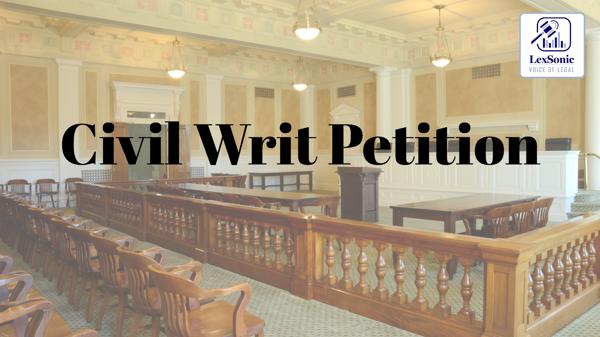Bombay High Court Quashes Mumbai Road Line Sanction Over Procedural Lapses and Lack of Hearing.
02 July 2025
Civil Writ Petition >> Civil & Consumer Law
In a significant ruling of Raghavendra Construction Company Pvt. Ltd. v/s Municipal Commissioner & Others, the High Court has set aside the Municipal Corporation of Greater Mumbai (MCGM)'s decision to sanction a new 13.40-meter Road Line (RL) through a developer's ongoing slum rehabilitation project in Malad. The court found that the sanction process was marred by a "gross non-application of mind" by the Slum Rehabilitation Authority (SRA) and a blatant violation of natural justice principles, as the affected developer was not granted a hearing.
The case revolves around a property acquired by the petitioner, Raghvendra Construction Pvt. Ltd., for a slum rehabilitation scheme. The developer was in the process of constructing multiple buildings, some completed and others underway, under an SRA-approved layout. The controversy arose when an adjoining plot, being developed by Respondent No. 5 (Harsiddh Corporation) and Respondent No. 4 (Sahayog SRA Co-operative Housing Society), sought a new public street, claiming their plot was landlocked.

The Disputed Road Line:
On December 7, 2023, the developer and the Society proposed to the SRA to sanction a new slum rehabilitation scheme on their adjoining plot, CTS No. 677/A/1 (part). Subsequently, on August 5, 2024, the Executive Engineer of SRA recommended the new RL, asserting its necessity for the viability of the adjoining SR Scheme. The Municipal Commissioner sanctioned this proposal on September 21, 2024, and the MCGM Administrator passed a resolution on September 26, 2024, authorizing the Municipal Commissioner to exercise powers under Section 291(a) of the Mumbai Municipal Corporation Act, 1888 (MMC Act) for laying out new public streets. The new RL was officially forwarded for implementation on October 3, 2024.
Crucially, this new RL was found to cut through the petitioner's existing and proposed buildings, significantly impacting their development, including Building 'C' being fully affected and Building 'B1' partially. It also encroached upon sanctioned open spaces and recreational grounds within the petitioner's layout.
Admission of Error by SRA:
Following representations from the petitioner on November 8 and 14, 2024, a critical development emerged. The Deputy Chief Engineer, SRA, acknowledged a significant oversight in a letter to the MCGM dated January 17, 2025. The letter explicitly stated that "the mentioning of adjacent ongoing SR Scheme known as Hari Om CHS (Prop) on plot bearing CTS.No. 610A/1B/1(pt) of Village Malad (East), General A. K. Vaidya Marg, Malad (East), Mumbai was erroneously missed out to be mentioned in this office letter vide reference 1) above." SRA subsequently requested the MCGM to grant a hearing to both the petitioner and the applicant (Respondent No. 5). A further letter on February 11, 2025, reiterated the request for a hearing and for the RL to be superimposed on the petitioner's approved layout for verification.
Despite SRA's admission of error and request for a hearing, the MCGM had not taken corrective action. The MCGM, in its affidavit, stated its willingness to reconsider the sanctioning of the impugned RL if SRA provided a proposal with a modified alignment.
Court's Rationale for Setting Aside the Decision:
The High Court identified two primary reasons for setting aside the impugned RL sanction:
- Non-Application of Mind: The court concluded that the RL was sanctioned with a "gross non-application of mind" by the SRA, as it failed to consider the ongoing development on the petitioner's plot and the impact on already sanctioned buildings. The SRA, despite being the special planning authority for both plots and having granted building permissions to the petitioner, overlooked these crucial facts while giving its "no objection."
- Violation of Natural Justice: The court firmly rejected the argument that no opportunity for hearing was required under Section 291 of the MMC Act. It held that when a proposed public street encroaches upon existing buildings, requires their demolition, or renders sanctioned buildings unbuildable, the affected owner must be heard. The court emphasized that the sanctioning of the RL directly affected the civil rights of the petitioner, necessitating an opportunity for them to be heard. The court distinguished the present case from Dr. Abraham Patani of Mumbai and Another V/s. State of Maharashtra and others, noting that in that precedent, the affected party was indeed given ample opportunity to object.
Remand and Future Directions:
Consequently, the High Court partially allowed the petition, setting aside all decisions taken by the MCGM for sanctioning the new public street through the petitioner's land. The court has remanded the proposal back for reconsideration, directing the MCGM to make a fresh decision in consultation with the SRA.
Specifically, the CEO/SRA has been ordered to:
- Afford a fresh opportunity of hearing to the petitioner and Respondent Nos. 4 and 5 before recommending any new public street to the MCGM.
- Take a fresh decision strictly in accordance with law, uninfluenced by any previous observations in the current order.
- Provide its comments to the MCGM within four weeks after the hearing process is complete.
The MCGM, in turn, must then make its decision on the SRA's recommendations by August 11, 2025. An interim order, passed earlier on March 5, 2025, will continue to operate until August 11, 2025.
This ruling underscores the judiciary's role in ensuring administrative accountability and adherence to fundamental principles of fairness, particularly when development plans impact private property rights.
